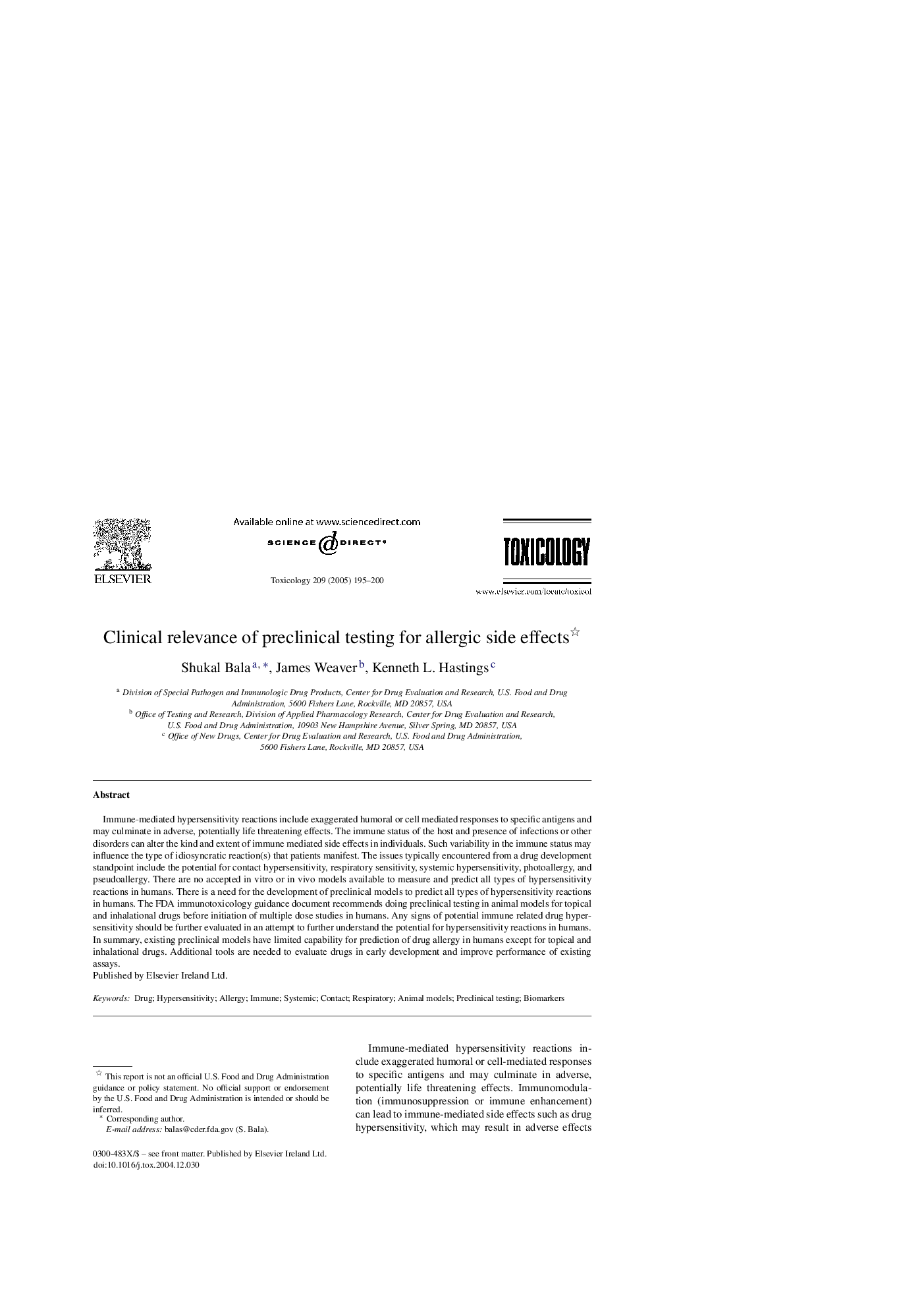| Article ID | Journal | Published Year | Pages | File Type |
|---|---|---|---|---|
| 9034548 | Toxicology | 2005 | 6 Pages |
Abstract
Immune-mediated hypersensitivity reactions include exaggerated humoral or cell mediated responses to specific antigens and may culminate in adverse, potentially life threatening effects. The immune status of the host and presence of infections or other disorders can alter the kind and extent of immune mediated side effects in individuals. Such variability in the immune status may influence the type of idiosyncratic reaction(s) that patients manifest. The issues typically encountered from a drug development standpoint include the potential for contact hypersensitivity, respiratory sensitivity, systemic hypersensitivity, photoallergy, and pseudoallergy. There are no accepted in vitro or in vivo models available to measure and predict all types of hypersensitivity reactions in humans. There is a need for the development of preclinical models to predict all types of hypersensitivity reactions in humans. The FDA immunotoxicology guidance document recommends doing preclinical testing in animal models for topical and inhalational drugs before initiation of multiple dose studies in humans. Any signs of potential immune related drug hypersensitivity should be further evaluated in an attempt to further understand the potential for hypersensitivity reactions in humans. In summary, existing preclinical models have limited capability for prediction of drug allergy in humans except for topical and inhalational drugs. Additional tools are needed to evaluate drugs in early development and improve performance of existing assays.
Keywords
Related Topics
Life Sciences
Environmental Science
Health, Toxicology and Mutagenesis
Authors
Shukal Bala, James Weaver, Kenneth L. Hastings,
